Blue Prince Doesn't Have A Satisfying Ending, But That's The Point

It increasingly seems like Blue Prince contains puzzles that will never be solved, an incredibly gutsy way to convey a powerful emotional impact
Double Dragon Revive | Official Gameplay Overview Trailer Monster Hunter Wilds - Official Free Title Update 2 Gameplay Overview Trailer "Dear me, I was..." - Official Teaser Trailer Super Mario Strikers – Nintendo GameCube – Nintendo Switch Online Release Date Trailer Street Fighter 6 - Sagat Teaser Trailer How A Tony Hawk Level Gets Made DEATH STRANDING 2: ON THE BEACH | Official Final Trailer The Complete DEATH STRANDING Timeline EVERYBODY'S GOLF HOT SHOTS – Gameplay Overview Trailer NTE Opening Animation Trailer | "Hypervortex Before the Storm" Palworld × Terraria | Tides of Terraria Major Update Gameplay Trailer WARRIORS: Abyss - Update 4: MASTER NINJA Characters Introduction Trailer
Want us to remember this setting for all your devices?
Sign up or Sign in now!
Please use a html5 video capable browser to watch videos. This video has an invalid file format. 00:00:00Please enter your date of birth to view this video
By clicking 'enter', you agree to GameSpot's
Terms of Use and
Privacy Policy
Now Playing: Blue Prince Review
The revelation came in the form of a journal entry, secreted away in a safety deposit box, hidden within the sometimes tough-to-access vault of the strange and shifting Mount Holly Manor. Reaching the paper requires solving one of Blue Prince's toughest, most obtuse, and most rewarding puzzles, one you won't even realize exists until you've broken through riddle after riddle and uncovered mystery after mystery. It recontextualizes everything that has come before it, not only the winding and involved test of wits that is the manor itself, but the story that had to be similarly excavated along the way--one of political intrigue and family tragedy, the rising and falling of kingdoms, the stoking of revolution, and the sacrifice necessary to breathe life into ideals.
The journal entry left by Herbert Sinclair, the shadowy great uncle responsible for the intricate puzzle box that is Mount Holly Manor, relates to how he discovered something after his brother's death. Lady Aurevei, the mother of Herbert and the younger Simon, was an avid fan of puzzles, riddles, and codes. Simon had discovered something of his mother's after her death--a page full of four-letter words, arranged in a grid, with seemingly no relationship to one another. It was a cipher; an encrypted message.
I can almost imagine what would have passed through Simon's mind when he found that note, because it's not unlike what's been going through my mind the entire time I've been playing Blue Prince, but more intense. It's that feeling of uncertainty and discovery, of wondering what awaits just beyond your grasp, and of seeking out the right tools, the right clues, to uncover it. Solving these puzzles is exhilarating; it's a rush of endorphins as inspiration strikes or a revelation hits, and that's just when you're solving them for the hell of it. The feeling born of uncovering something that belonged to a lost parent--of stumbling upon a secret locked way behind a code that might let you learn something new about someone you loved--that's hard to quantify, and harder to ignore.
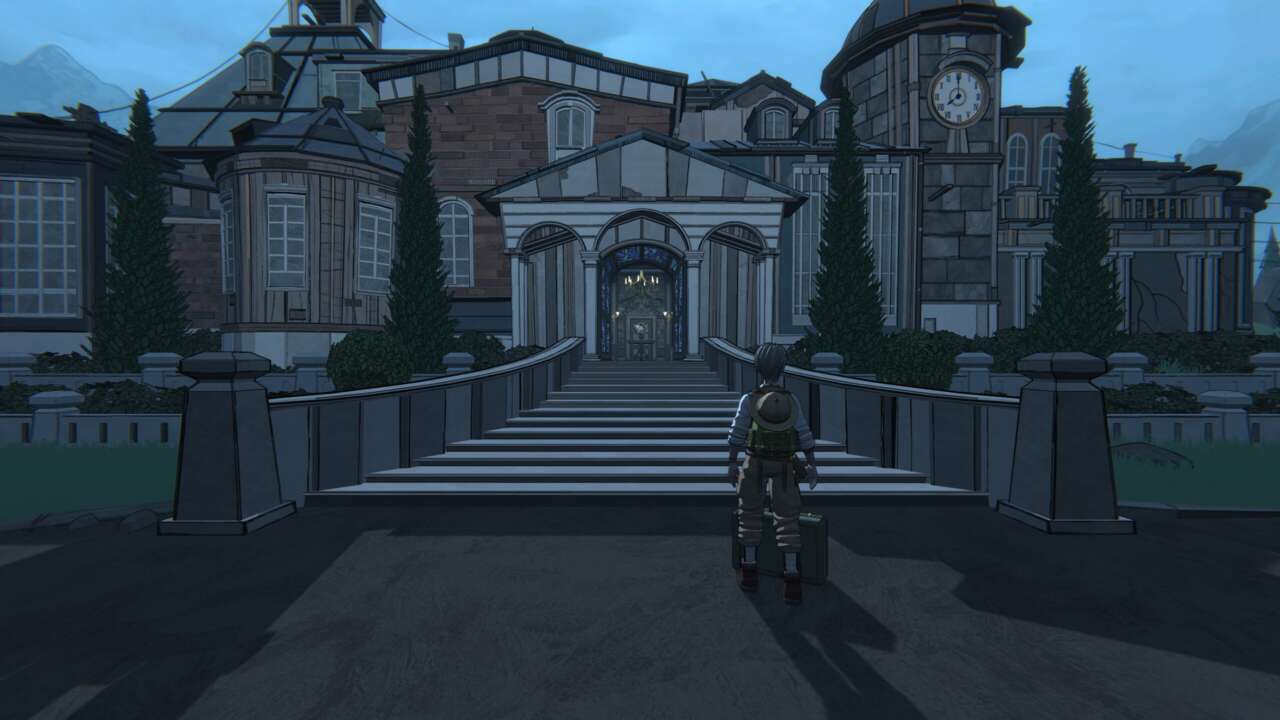
The journal details how Simon worked on the cipher for years. He sought out books on cryptography and poured over research hoping to understand it, documenting the road he paved along the way. But he never did crack the code. Much in the way Simon discovered the cipher in his mother's effects after her death, it was in the aftermath of Simon's death that his brother Herbert uncovered the cipher and Simon's attempts to solve it.
And so Herbert took up the challenge. Like his mother, Herbert was a puzzle-master, a lover of riddles and brain-teasers. Despite being the wealthy baron of Mount Holly, Herbert spent his years devising puzzles for the local newspaper--Baron's Bafflers. While Herbert saw that his brother had been diligent and intelligent in his attempts to solve the cipher, he also recognized that Simon didn't really have a head for code-breaking. For Herbert, though, these things came more naturally, and he turned all his skills on the cipher. He would succeed where Simon failed. He would find what their mother left behind.
Thirty years passed.
Herbert's journal entry ends with him admitting that, despite everything, the cipher bested him, too. Over the decades, he'd had little choice but to come to terms with that. He never found out what the message was, or why she created it. Aurvei was gone. He couldn't ask her what she might have wanted the brothers to know. He had to quietly accept that a piece of his mother's life was there, in his hands--but it would remain inaccessible to him. Forever.
Reading Herbert's journal made it clear to me that a nagging feeling I kept getting about Blue Prince--that for every one of its many questions you might answer, success only ever seemed to lead you to two more--was an intentional decision by its creators. You're supposed to feel like the spiral spins ever downward. You're supposed to wonder what it's all for. You're supposed to feel the frustration that comes with the growing sense you might never find the bottom.
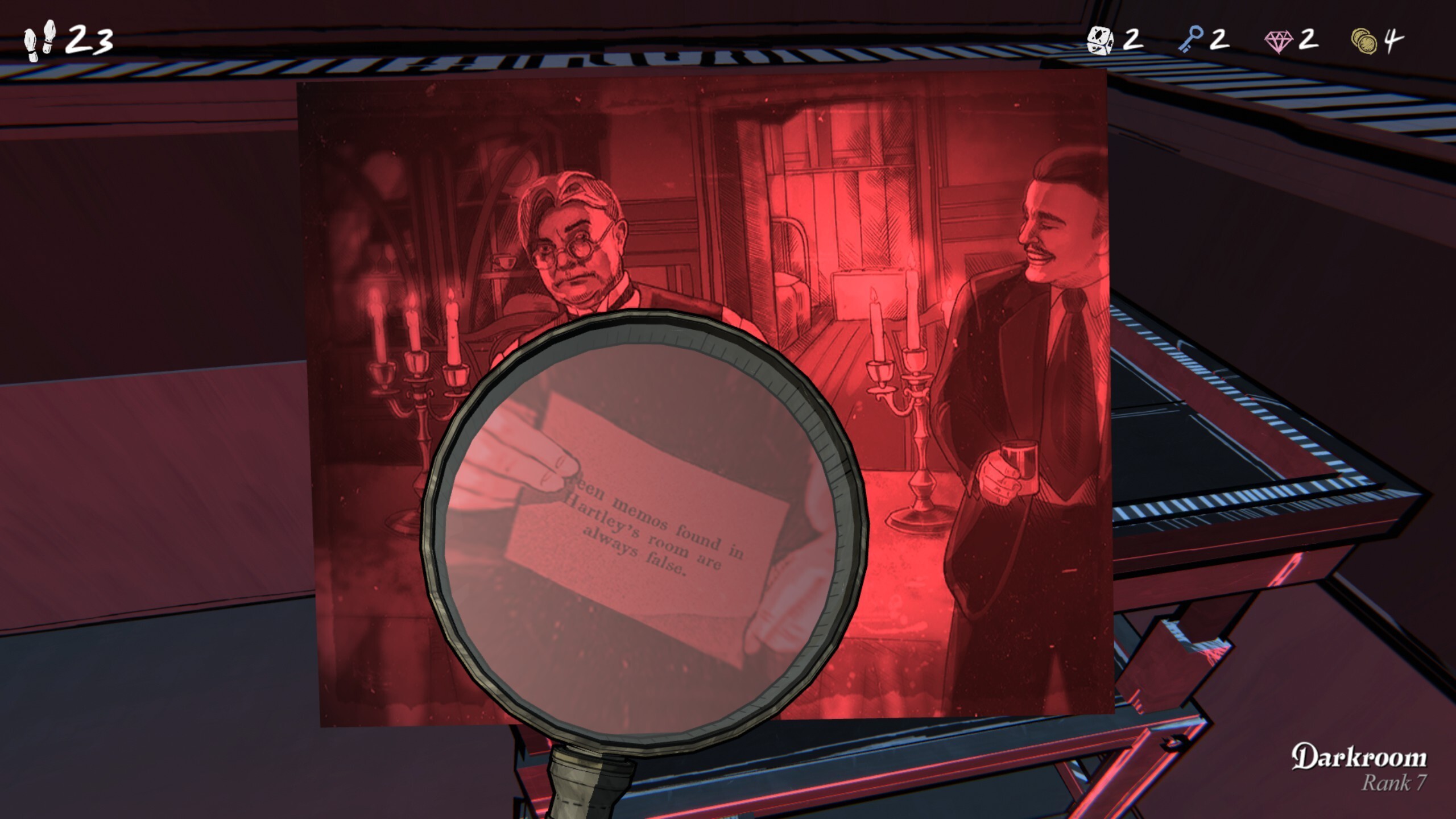
For much of its runtime, Blue Prince feels like the unfurling of a plan as you follow in the footsteps of others. After a while, you start to discover the things that truly make Blue Prince fascinating as the game subtly points you toward them, offering more and more clues to direct your gaze. Some rooms hide greater mysteries that unlock other parts of the grounds. Some hold computer terminals with emails or special functions, accessible only once you've divined the network password. Some include locked safes whose combinations you have to ferret out, while others contain archives of news stories that give hints about family secrets and world history, or books full of cryptic clues. The more of these you draw together, the more a picture starts to slowly come into focus, and each new discovery builds on the growing and enthralling revelation that there is much, much more to Mount Holly Manor than is ever obvious.
Slowly, as you uncover more of Sinclair's story and solve more of his many puzzles, you also start to learn the story of Mary, Sinclair's niece and the mother of Simon Jones, the game's protagonist. Mary has been missing for years at the start of Blue Prince, but by following the breadcrumbs scattered throughout Mount Holly Manor, you begin to understand that Mary left something behind for Simon to find--an even deeper and more compelling puzzle than any of the others.
Herbert Sinclair and Mary worked together to blaze this trail for you, and opening each lock, uncovering each clue, and reading each note is something you have to earn--something deliberately hidden from others so that only you would find it, with a new, tiny piece of the real puzzle as your reward. They had something they wanted you to accomplish, a destination they needed you to reach--and they left a blueprint to guide you to it. You're in conversation with these people from the past, these members of Simon's family. They speak to you even from beyond the grave, and what's more, you learn more and more about them with each new correspondence or clue. Sinclair and Mary may both be gone, but you find out a great deal about what kind of people they were and how they felt about their roles and responsibilities. You start to know them through both the parts of themselves they specifically left for you, and the clues scattered throughout that give a sense of their lives beyond them.
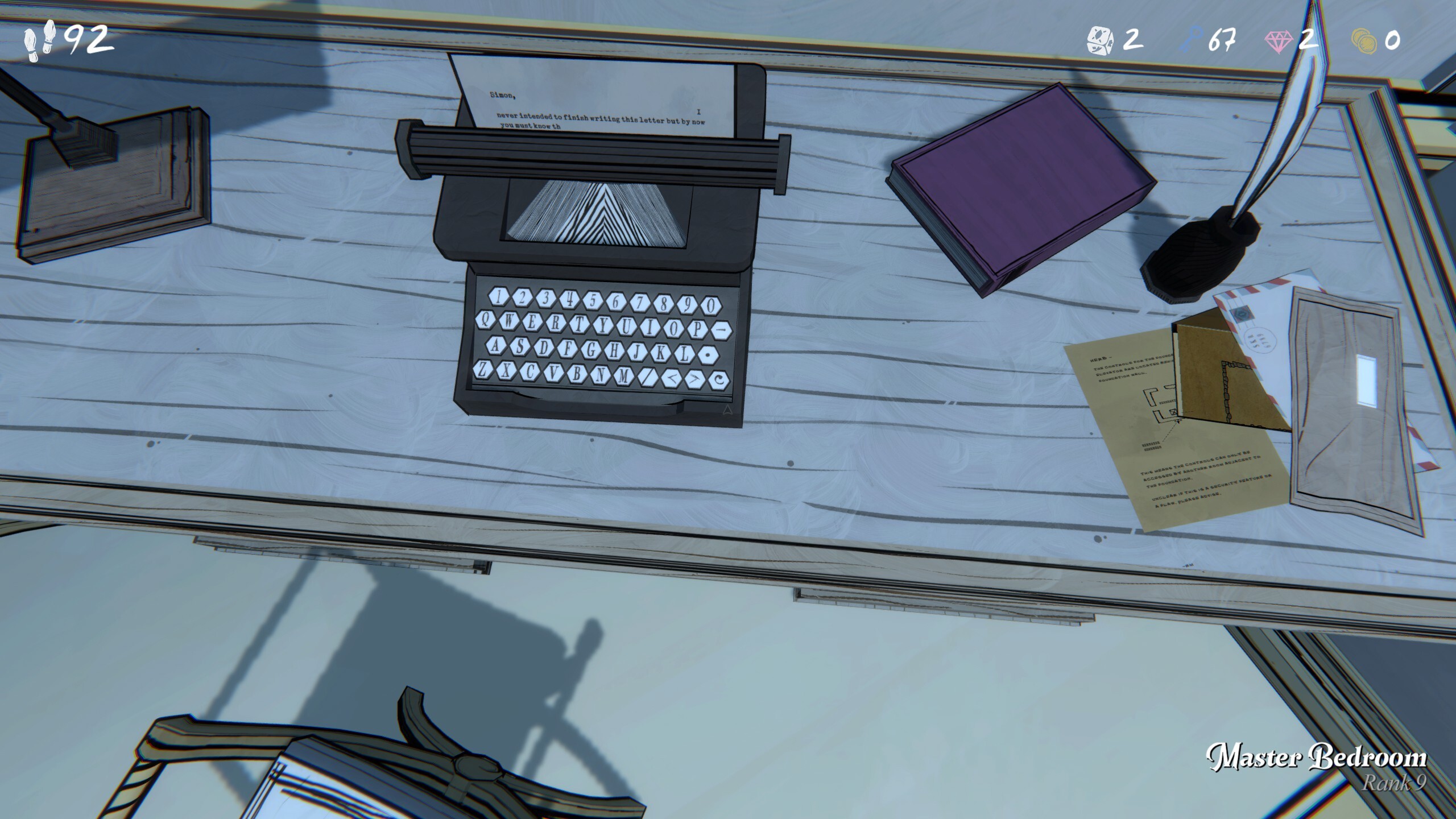
Eventually, you discover the Master Bedroom, where Sinclair slept. It's a hard room to come by, thanks to the randomness inherent to Mount Holly and the specific requirements to make it appear, which helps increase the likelihood that it'll probably be at least some hours into the game before you happen across it. Inside, you find another letter addressed to Simon, but this one doesn't wait in an envelope--it's still in the typewriter.
"Simon," it reads. "I never intended to finish this letter but by now you must know th"--and there's nothing more.
Whatever Sinclair intended to write, whatever he wanted to impart to Simon with this final note, we'll never know. Sinclair is gone, and the letter will never--can never--be finished.
As you continue following the threads Sinclair and Mary left behind, that feeling returns again. Where is all this going? Again and again, you think you know the destination; again and again, you open a door expecting it to be waiting ahead of you--only to find more doors. Walking down Blue Prince's path, you are undoubtedly moving forward, but with each landmark you reach and each triumph you notch, there's only another on the horizon.
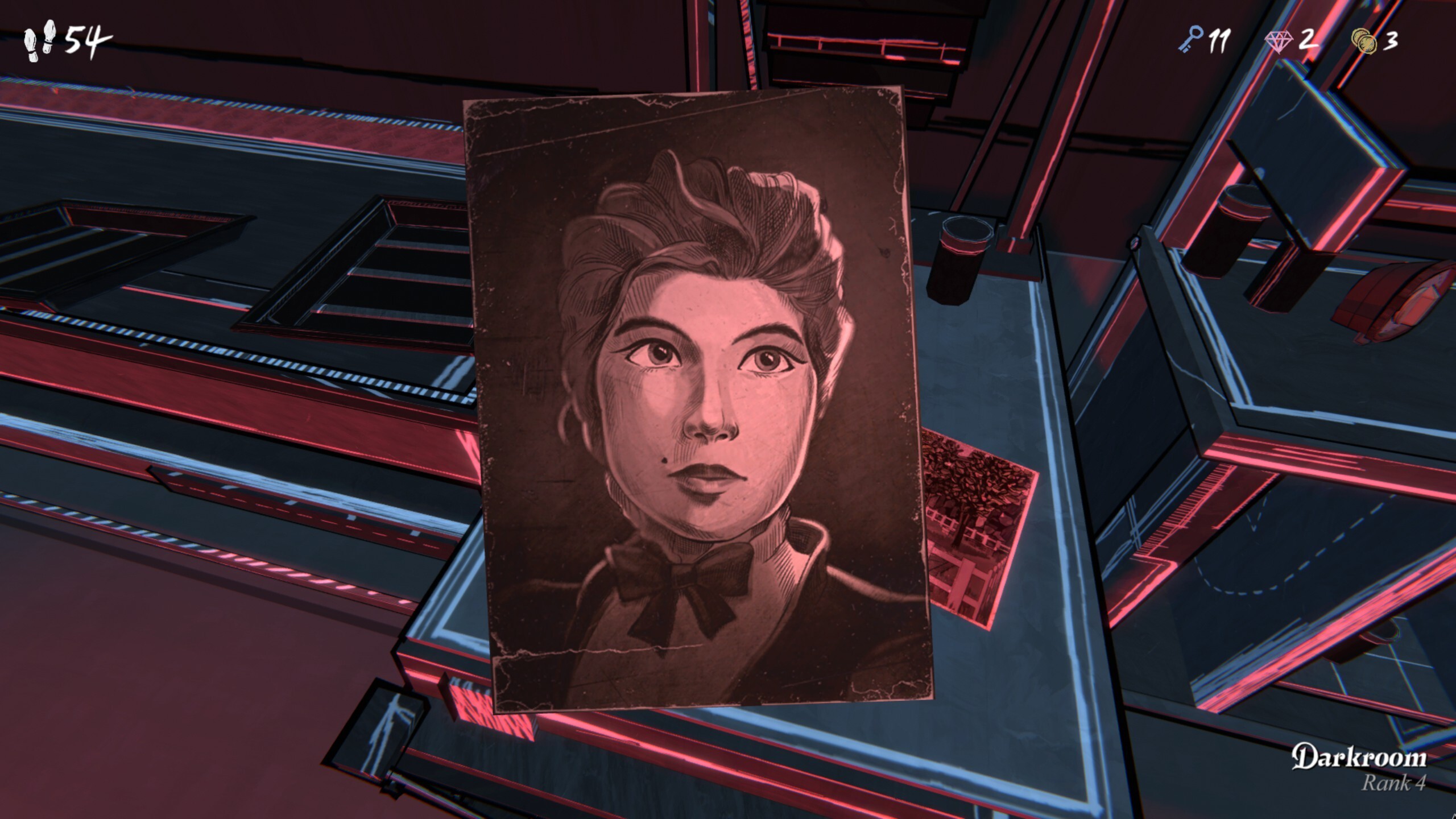
In the bedroom of Mary's mother, the avid amateur astronomer Lady Clara, you find a scrap of paper with a spiral drawn on it and a note written beneath, which reads, "Does it never end?" The note refers to a constellation you can discover in Blue Prince's sky, the Spiral of Stars. Each time you gaze up at it, it is extended by one star and its description grows by one word, continuing on and on, seemingly endless. After a time, that question on the note seems to stop referring to the Spiral of Stars, and start referring to Blue Prince itself.
I'm now 200 hours into Blue Prince, and as far as I can tell, I have seen, experienced, and solved everything that anyone who has played or is playing has seen, experienced, or solved. The credits have rolled twice. I've seen cutscenes that imply endings, with some degree of emotional catharsis. But each time, the game has just started back up again, and each time, I've had a handful of leads that still need to be followed. Room 46? Unlocked it. Mary's hidden message to Simon? Read it. Aurvei's cypher? Solved it, and the incredible new questions to which it gives rise.
I've been as far as the path has been trod, and yet more mysteries remain. Blue Prince has presented me with what could be considered conclusions, but none of them is a 100% satisfying, definitive completion. Stories remain unfinished. Clues remain unsolved. Doors remain unopened. Right now, you can solve all we know how to solve in Blue Prince, and still have a game's worth of questions plaguing you.
Here's one: that spiral note I mentioned? It's one of several notes with spirals on them, each with a message that's an anagram for the others. Nobody in the Blue Prince community knows what to do with them or what they mean. They're just free-floating clues, signposts pointing toward a fog into which many of us have ventured, but of which no one has seen the other side.
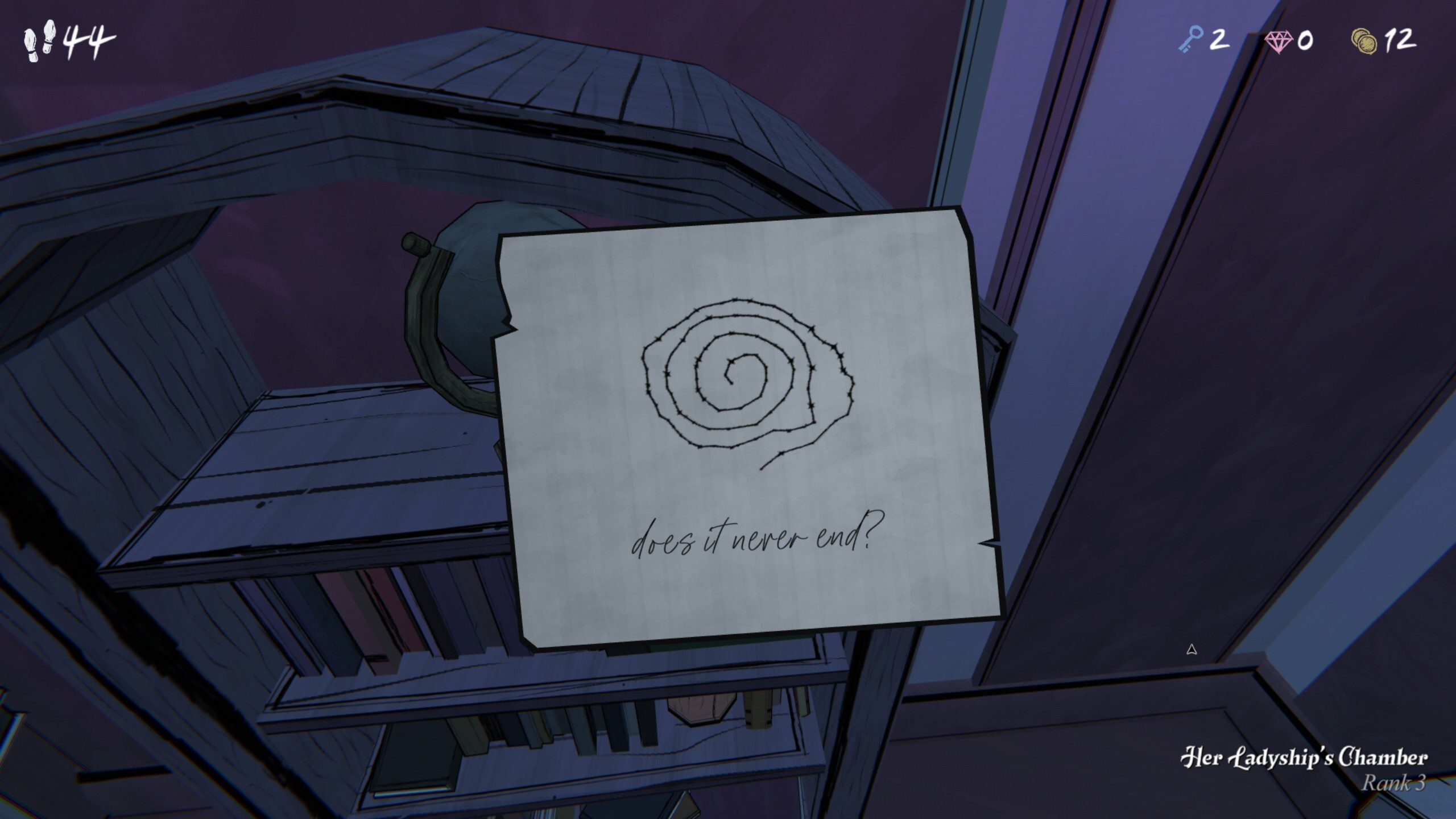
In many players, that has left Blue Prince with the feeling that, even despite playing a brilliantly constructed game for potentially hundreds of hours, eventually it sort of just...fizzles out. You get to a point where you have clues, and you have ideas, but you can't seem to put them together in the right way to continue on. As you come to dead end after dead end, eventually, you just give up playing.
In "Does Blue Prince never end?," Aftermath's Chris Person meditates on this feeling and the sense that there is, perhaps, no real complete conclusion to Blue Prince. His analysis is more about the means by which the game burrows into your skull, rewires your brain, and creates obsession--as well as how its murky depths may drive you mad if you stare into them too long, squinting to make out cloudy, drifting answers that might just be random shapes given meaning by your fevered imagination.
"Leaving that many loose strings is either uncharacteristically lax from an otherwise meticulously planned game, a series of red herrings to drive the player base insane, or a sign that the game has not been beaten," Person writes. "It’s also possible that this is the end of the rabbit hole. Maybe no ending could ever satisfy the kind of players that the game has created and that it has trapped itself into a corner of anticlimax. Maybe there is a metatext here about puzzles and clues, about some mysteries tormenting you and clawing at you for your entire life, just out of reach."
I've come to believe that there are more mysteries in Blue Prince than there are means to solve them. It's possible that Blue Prince is unique among puzzle video games, in that it will never be completely solved. I think that, maybe, it can never be completely solved.
Person's last thought of that quote, speculating about a metatext on puzzles and clues and the torment of mysteries, is the correct one, in my mind. Not that Blue Prince is caught in an inescapable anticlimax, the density of its phenomenal execution and incredible ambition creating a black hole that is impossible to escape despite its best efforts--but that this anticlimax is exactly the point the game is making.
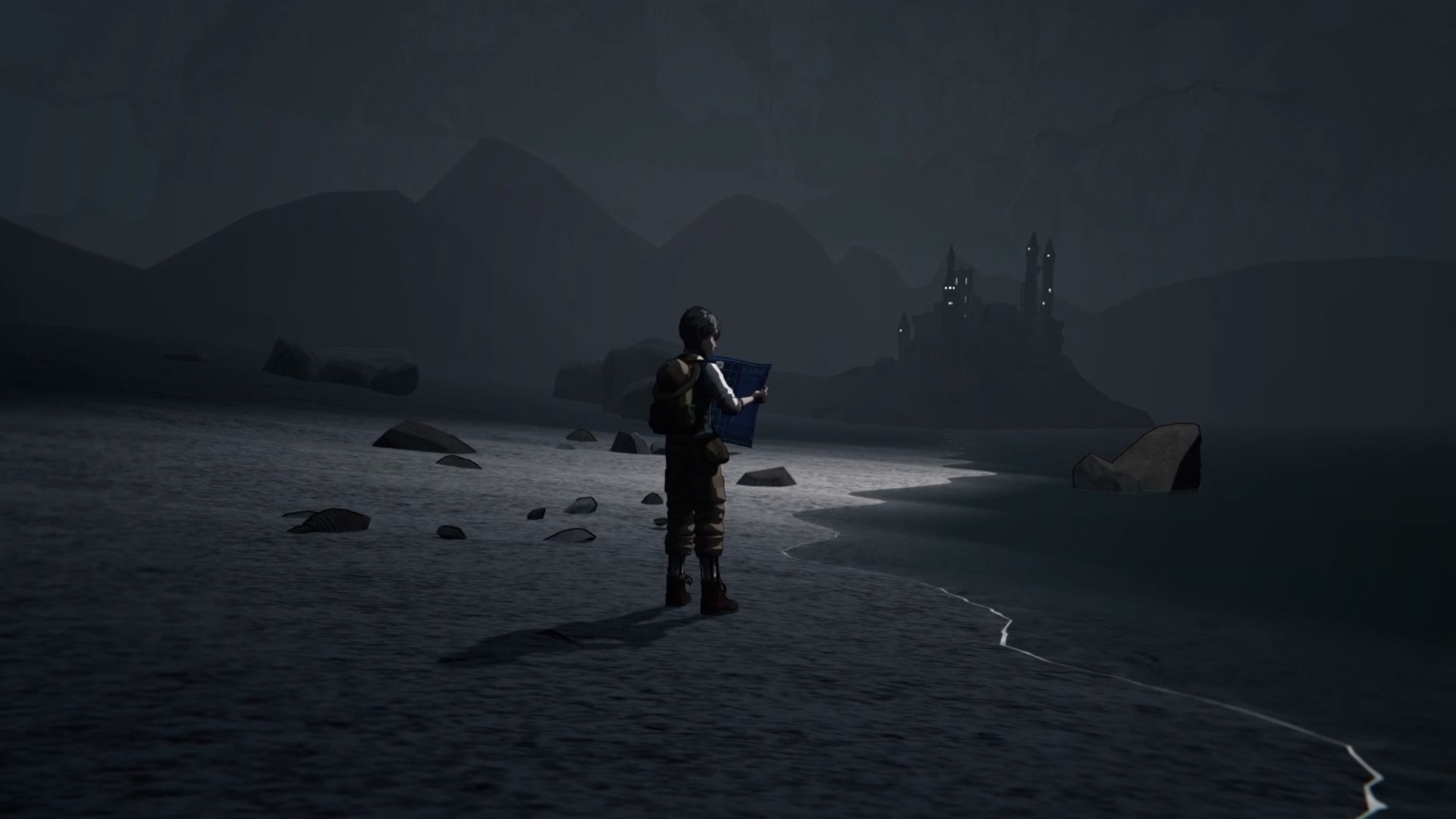
My grandmother recently passed away at the age of 94. She had a huge family--five children, more than a dozen grandchildren, and many more great-grandchildren--so the funeral was a family reunion of sorts, an opportunity to spend time with people I hadn't seen in years that was somehow both somber and joyous.
Through the course of the several days I spent back home for the whole event, I learned things about my grandmother I had never known. She was born in 1930 in France but grew up in Italy, which I'd heard, but my aunts, uncles, and cousins told me more about that journey, as well as her life during World War II, something she hadn't liked to talk about much. There were stories of her life that I'd known, and many others that were new to me. Some elements put her into sharper focus in my mind, while others shone a light on aspects of her life that, to me, remain blurry.
I spent a lot of time with my grandmother when I was young and I think I knew her pretty well, in a way that only family can, but there are so many things I never thought to ask, that I never heard about, that she never told me, and that I'll never know. There is no correspondence I can find, no riddle I can solve, no discovery I can make about her life that will ever tell me everything I might want to know about her. She's gone, and those answers are gone with her, and that is something that I have no choice but to accept.
That is, I imagine, exactly what Simon and Herbert Sinclair felt as they struggled with their mother's encrypted message. As the knowledge grew in their minds that they'd never find the answer, so would their sense of loss.
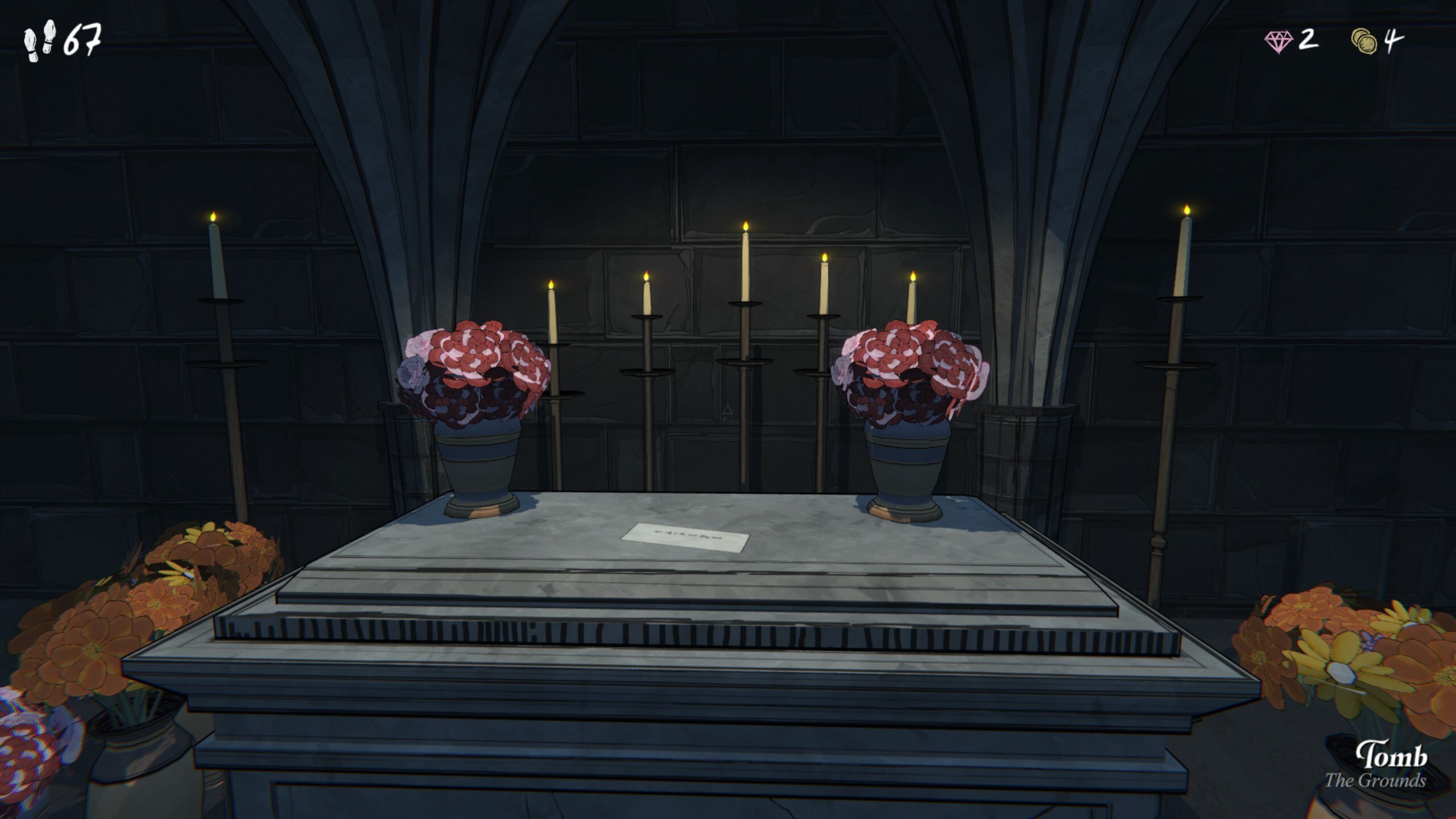
Blue Prince is acutely aware that real life abhors a satisfying conclusion, the idea of every string coming together into a tight, neat little bow, despite how much we've come to expect one from a constructed and curated experience such as a video game, and regardless of how much we humans might crave one.
It's not a story about reaching a climactic moment when all is finally revealed, when the effort is paid off, when the story is fully told, and when you know everything there is to know about Sinclair and Mary and Auravei. Blue Prince is about grieving people we've lost, and the realization that, try as hard as we might to understand them, to compile information about them and to gather all that remains, there comes a time when we are unable to truly know them any more than we already do. Every puzzle we solve will only lead to another until eventually, we reach a cipher we can't break.
At some point, you have to accept that the one person who could have told you the answer is the person you can never ask. The search for Mary teaches you about why she did what she did, but ultimately, you will never find her. The conversation with Sinclair allows him to impart his wisdom to Simon even from beyond the grave, but ultimately, it ends with an unfinished letter. We can continue to search, but the answers will always be elusive, and the spiral will spin on. The emotion Blue Prince is trying to create through this experience is not dissatisfaction--it's sorrow.
That is a powerful message to convey with any game, but with a puzzle game like Blue Prince, it's also an incredibly bold one. It stands apart from our expectations from the medium of games and our desires as humans. It demands more of us than simply finding an answer and reaching a conclusion.
Perhaps, one day, we'll know all there is to know in Blue Prince, see all its mysteries brought into the light, and watch as every one of its locked doors is thrown open. But I doubt it. Instead, I think Blue Prince's purpose is in its incompleteness. Its true ending is the dully painful, slightly sad one that happens not in the game, but in us. It's the one that makes us realize that we have no choice but to make our peace, and go on.
18 Games Like Blue Prince That Will Become Your Next Obsession

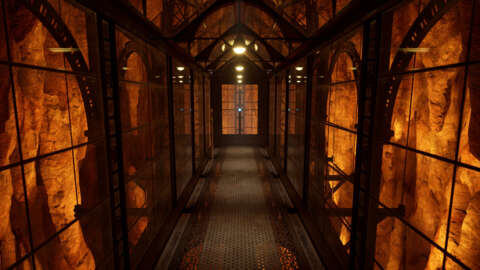




Got a news tip or want to contact us directly? Email [email protected]
Blue Prince PC Xbox Series X PlayStation 5This story originally appeared on: GameSpot - Author:UK GAG














